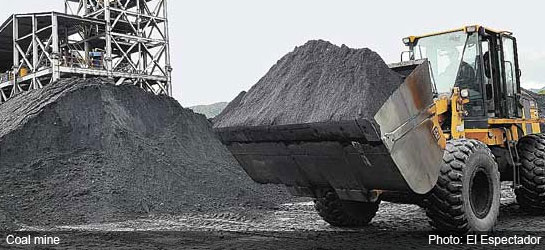
The troublesome mining contract between the Colombian government and Anglo-Australian mining giant BHP Billiton will be extended until 2029, it was announced on Wednesday, while negotiations for a better deal for the country continue.
The 1996 contract, which currently allows the multinational company to mine ferronickel in Cordoba of northwestern Colombia, has been the subject of a tribunal which has ruled that the government must negotiate a better deal for the country and take new legislation and international standards into account.
“We have decided to extend for a period of three months the negotiations which have been in place for over a year with the company Cerro Matoso SA, a subsidiary of BHP Billiton, which is responsible for the exploration and exploitation of nickel ore in the department of Cordoba,” said the minister for mines and energy.
There are three contracts in place between Colombia and the company which wants to extend its agreement for another 30 years, two of which expire this Sunday. According to the minister the two expiring contracts “will join the 051-96M contract [with Cerro Matoso] in place for the last 16 years.
The minister announced that the contract 051-96M will “continue in full force and continue to govern the contractual relationship between the nation and Cerro Matoso until 2029 …. as understood by the national government and confirmed by the opinion issued by the State Council and other experts, that the contract is in force and is presumed to be lawful and valid.”
The National Mining Agency will take charge of “analyzing the new economic conditions of the contract … under the premise that the country can get the most benefit under the new contract terms,” said the minister.
According to Radio Caracol, workers in the mine want social investment issues to be included in the agreement, while the governor of Cordoba wants local officials to be part of the negotiations.
Last year Cerro Matoso was forced to pay the state nearly $20 million in royalties and unpaid taxes that should have been paid in 2008 and 2009, following an audit by the Colombian Comptroller General’s Office.
The mine produces 4% of the world’s ferronickel, which is used mostly in the manufacturing of stainless steel and other heat-resistant steel products as well as in batteries, electronics and aerospace applications. The mine has a reserve life of about 40 years.

